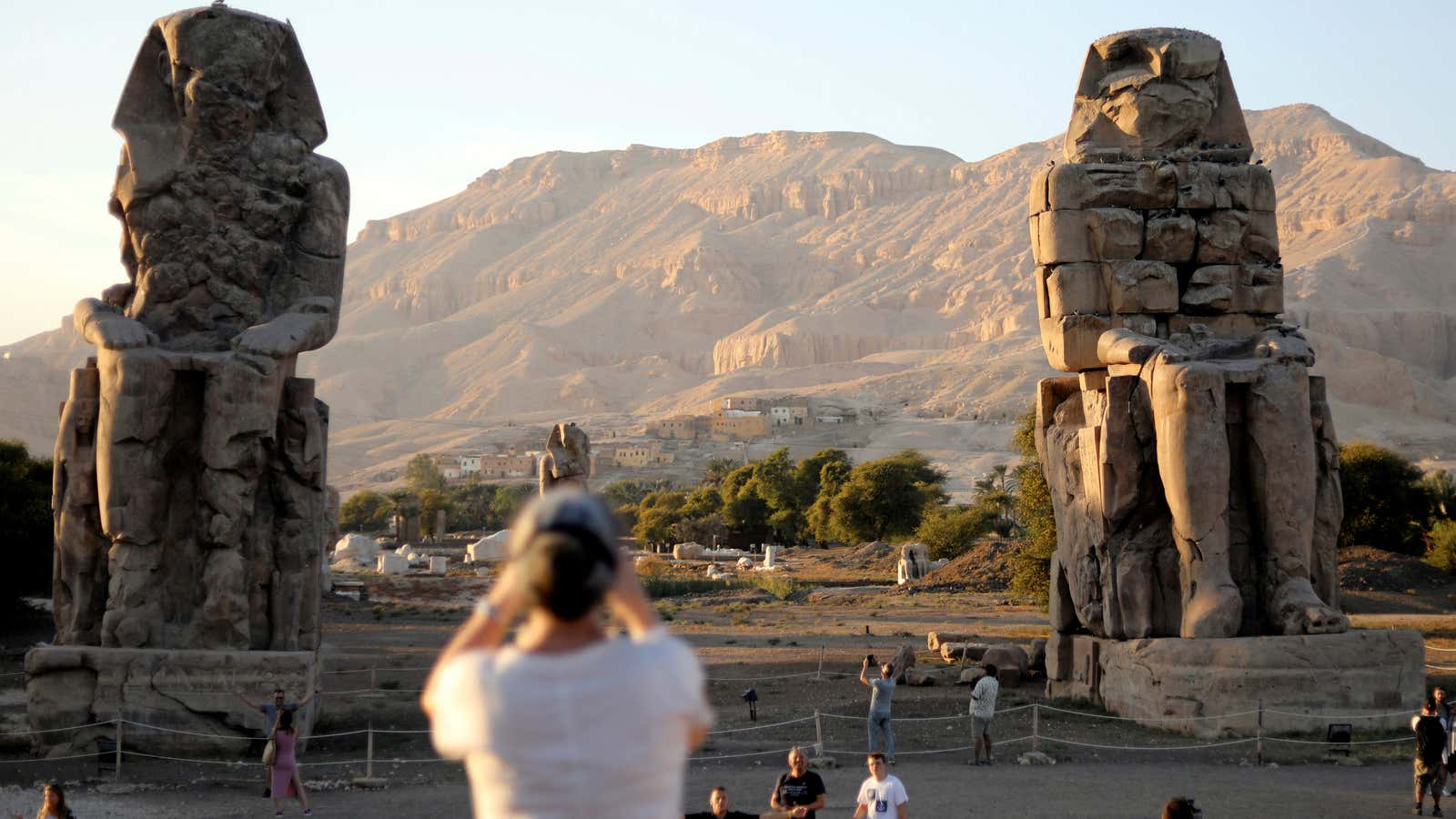If you knew you only one chance to go to Paris, would you skip the Louvre? In Cape Town, would you pass on the Table Mountain cableway? Would you leave the Grand Bazaar off your itinerary for your one day in Istanbul?
For a lot of travelers, the answer is decidedly no. Indeed, despite the hype of “living like a local” travel and the omnipresent, yet rarely-defined focus on “authenticity,” the fact that travelers still want to see the greatest hits is as true as ever.
That’s why, in August, GetYourGuide, a 10-year-old online tours-and-experience platform it launched a “Originals” tour product, with curated tours it says offer a location’s most in-demand attractions in an innovative and engaging way. Co-founder Tao Tao says Originals is driven by the company’s research which shows the fear of missing out on an iconic tourist attraction is the biggest motivator in trip-planning—not trying to live like a local. A cheesemaking course in an outer-lying neighborhood may be nice, in other words, but not if it means skipping the Eiffel Tower.
“You wouldn’t want my week [in Berlin]: Working out in the cold at 7am. Same bar every Friday. Maybe once in a while there’s a house party—that’s the local experience,” Tao says. “What people really want is a deeper travel experience, one that goes beyond the surface,” but still visits major attractions.
For example, GetYourGuide’s Originals include a walking tour through some of London’s biggest tourist attractions, set to the theme of Harry Potter and an efficient 90-minute tour of Versailles, with no line. With seven original tours at launch, they hope to expand to 100 tours in 15 destinations next year.
Much of the hype around “authentic” and “local” experiences comes from the company that wants to provide everything from where you stay to what you do when you get there: Airbnb. The company’s Experiences product, which launched two years ago, has gone from 12 cities with 500 options to over 1,000 cities and 15,000 options. They also recently opened a second office in LA, dedicated to the expansion of Experiences.
Airbnb’s approach is different from GetYourGuide’s or other tour booking platforms like TripAdvisor. GetYourGuide acts as a kind of aggregator for tours and experiences provided by professional tour guides, similar to TripAdvisor. Airbnb is more curatorial and emphasizes a peer-to-peer vibe, with “hosts” rather than professionals providing the experience. Of the thousands of submissions they receive per week, only 30% of applicants qualify as the kinds of “unique, high-quality experiences that you can’t find anywhere else” that they want on the platform, according to an Airbnb spokesperson.
But even Airbnb has reportedly felt the pressure to go mainstream. The Information (paywall) in October noted that “investors and executives have at times advocated for Airbnb to sell more traditional activities and tours, such as museum tickets.” In fact, The Information noted there were reports that Airbnb had been in talks with sightseeing tour provider GrayLine to offer more mainstream touristic options on the site. An Airbnb spokesperson confirmed those reports to Quartz, but said that the company ultimately decided “GrayLine was not a good fit for Airbnb experiences.”
The platform’s offerings do appear to be going more mainstream in other ways, such as featuring more hotels and actual bed and breakfasts on the platform. And it will be hard for Airbnb to scale Experiences to the size of the customer base it wants without offering the types of tours that every traveler wants. That’s why it makes sense that you can now find Experiences like a tour of a Louvre with a stand-up comedian who also happens to be an art historian. Sure, it’s something you’re unlikely to find anywhere else—but it’s still the Louvre.
Tao wants to push back against the idea we shouldn’t want to be visitors when we travel. We are, he says, and we should embrace that. “The inherent notion of a visitor is a beautiful one—I don’t think we should take that away,” Tao says. “I ask 10 times more questions as a visitor than I ask as a local…it’s a totally different experience.”
